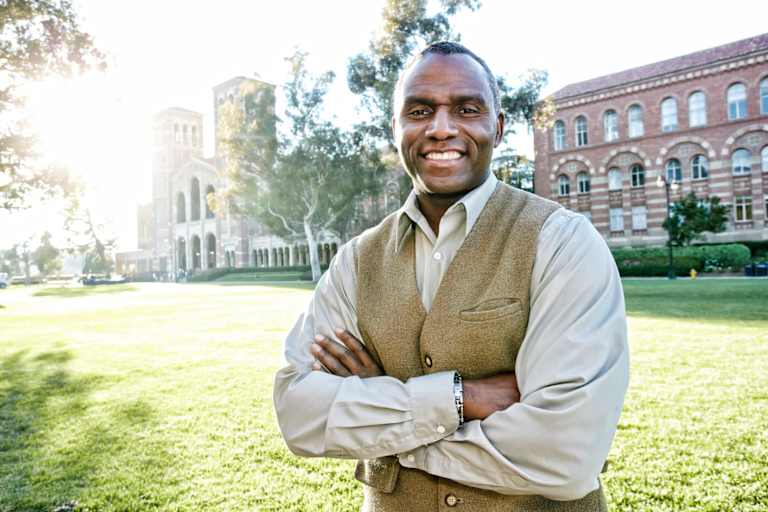Doctorate in Education (Ed.D.) Admission Requirements
An Ed.D. is the terminal professional degree in education. As a result, Ed.D. programs set high admission requirements and standards. But how hard is it to get into an Ed.D. program?
First, applicants need to meet the doctor of education requirements. For example, Ed.D. programs require a master’s degree for admission. Some applicants hold an Ed.S. degree. Ed.D. programs also expect management or leadership experience in an educational setting.
After meeting the requirements, applicants need to put together a strong Ed.D. application. That means solid letters of recommendation, curriculum vitae or resume, and a focused statement of purpose.
By understanding what doctorate in education (Ed.D.) programs prioritize, you can increase your chances of getting an acceptance letter.
Admission Requirements for Ed.D. Programs
Before applying to Ed.D. programs, prospective students must meet the admission requirements. Most programs require a master’s degree, for example. And Ed.D. programs often ask for three years of experience in an education setting.
The Ed.D. application process also requires materials like letters of recommendation, a resume, and a personal statement. Some programs conduct interviews or require writing samples.
Popular Online Education Doctoral Programs
Learn about start dates, transferring credits, availability of financial aid, and more by contacting the universities below
Requirements for an Ed.D. Application
Master’s Degree: Ed.D. programs require a master’s degree for admission. Candidates with an Ed.S. also meet the requirement. Most programs require a minimum 3.0 GPA.
Professional Experience: Ed.D. programs often expect professional experience. For example, applicants may need at least three years of relevant experience.
Personal Statement: In the personal statement, applicants explain their preparation for doctoral-level study. The statement lays out the candidate’s goals with an Ed.D. degree.
Letters of Recommendation: Programs typically request 1-3 letters of recommendation. Applicants can ask professors, supervisors, and other professional references to write letters.
Curriculum vitae or resume: This document should reflect your education, professional experience and accomplishments in the field of education.
Interview: Some Ed.D. programs conduct interviews as part of the admission process. For example, many online programs use interviews to evaluate applicants.
Online Ed.D. Application Process
Online Ed.D. programs appeal to many prospective doctoral students. The flexible learning environment makes it easier to work while pursuing a doctorate.
How does the online Ed.D. application process differ from in-person program admissions? Typically, universities set similar requirements for online and on-campus Ed.D. programs.
Prospective students submit an online Ed.D. application with a resume, letters of recommendation, official transcripts, and a personal statement. Online programs may conduct a virtual interview to discuss the program with applicants.
During the application process, students interested in online programs should review any residency requirements, licensure information, and fieldwork options.
Ed.D. vs. Ph.D. Admission Requirements
What’s the difference between Ed.D. and Ph.D. admission requirements? The following table breaks down the main differences between applying to Ph.D. vs. Ed.D. programs.
| Typical Ed.D. Admission Requirements | Typical Ph.D. Admission Requirements |
|---|---|
|
|
What Do Ed.D. Programs Look For in Applicants?
Because Ed.D. programs train graduates for leadership positions in education, programs evaluate applicants on their experience and leadership qualifications. They look for teaching certifications, leadership experience, and other evidence of a strong professional track record.
Your academic record also plays a role. Applicants with a strong GPA or exceptional master’s-level projects stand out.
Finally, recommendations matter in Ed.D. admissions. Programs often ask for both academic and professional references. Letter writers speak to the candidate’s qualifications and ability to succeed at the doctoral level.
How to Boost Your Chances of Getting Into an Ed.D. Program: 5 Tips
Are you wondering how to get into an Ed.D. program? Many programs set competitive admission standards and only accept a fraction of applicants. How can you boost your chances of getting into your top choice Ed.D. program?
1 Research the Program
Fit matters for doctoral admissions. Research graduate programs to make sure your background, experience, and goals match the program. Contact prospective advisors and faculty to discuss their research areas. Highlight your knowledge of the program on your application.
2 Highlight Your Leadership Skills
Ed.D. programs train educational leaders. In addition to gaining leadership experience, make sure to center leadership accomplishments and goals on your applications. Mention specific projects, team building, and problem-solving examples in your resume and statement of purpose.
3 Strengthen Your Recommendation Letters
Doctoral programs ask for letters of recommendation to evaluate your academic and professional strengths. Strengthen these letters by providing key materials to your letter writers.
Include your statement of purpose and evidence of your qualifications. Ask professors to highlight your academic skills and ask professional references to focus on your leadership achievements.
4 Identify Your Interests
Know your concentration and related interests before applying to programs––and zero in on specific topics in your application materials. Mention the major issues you will examine in your capstone or dissertation. A well thought-out topic proposal will help your application stand out.
5 Emphasize Your Goals
Why do you need an Ed.D.? Your application should explain your professional goals and why an Ed.D. will help you reach them. Too many applicants apply to doctoral programs without a clear career trajectory. Explain your goals to stand out from the competition.





